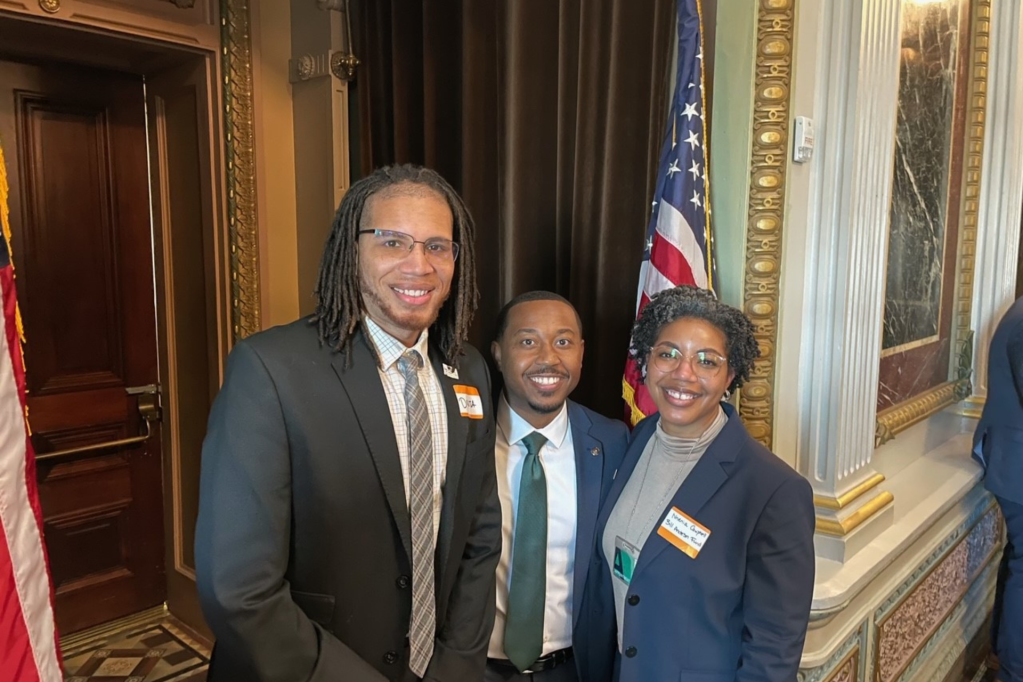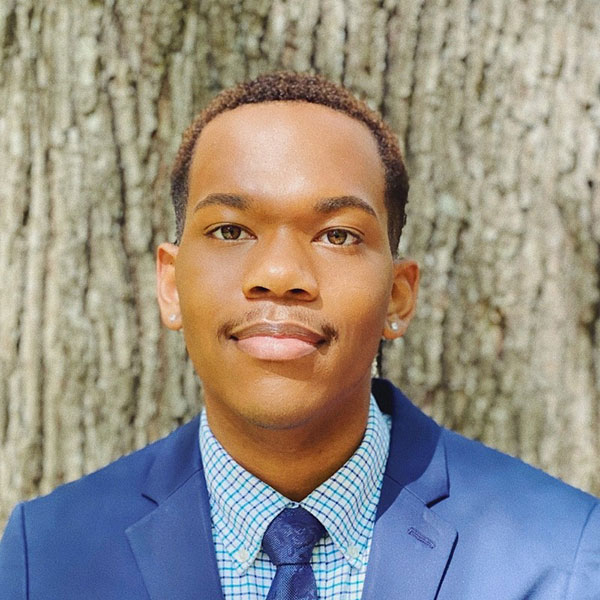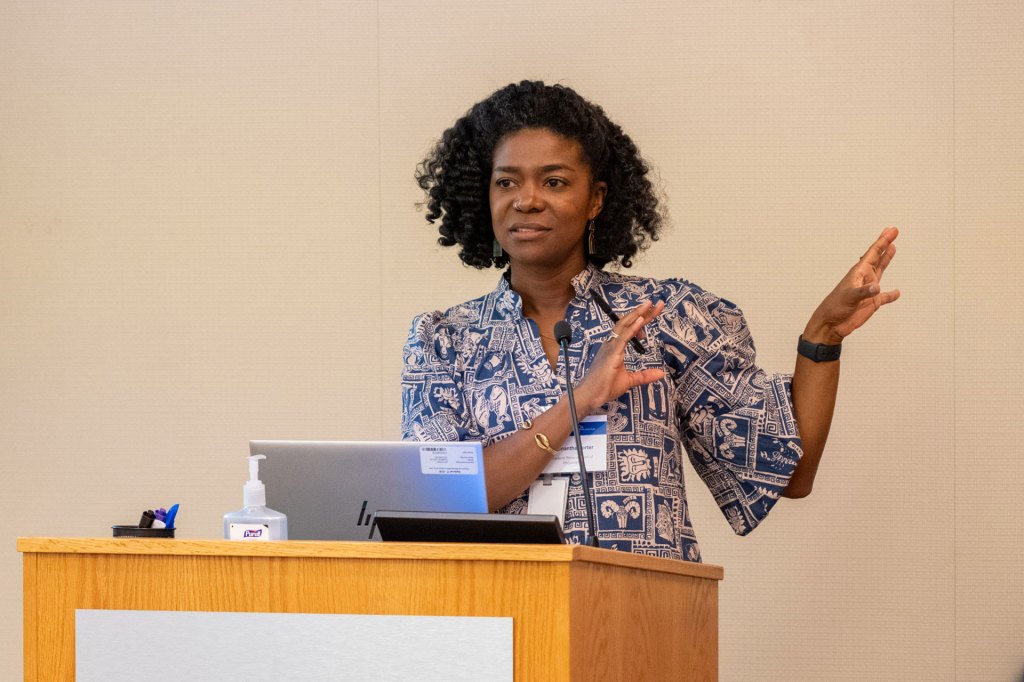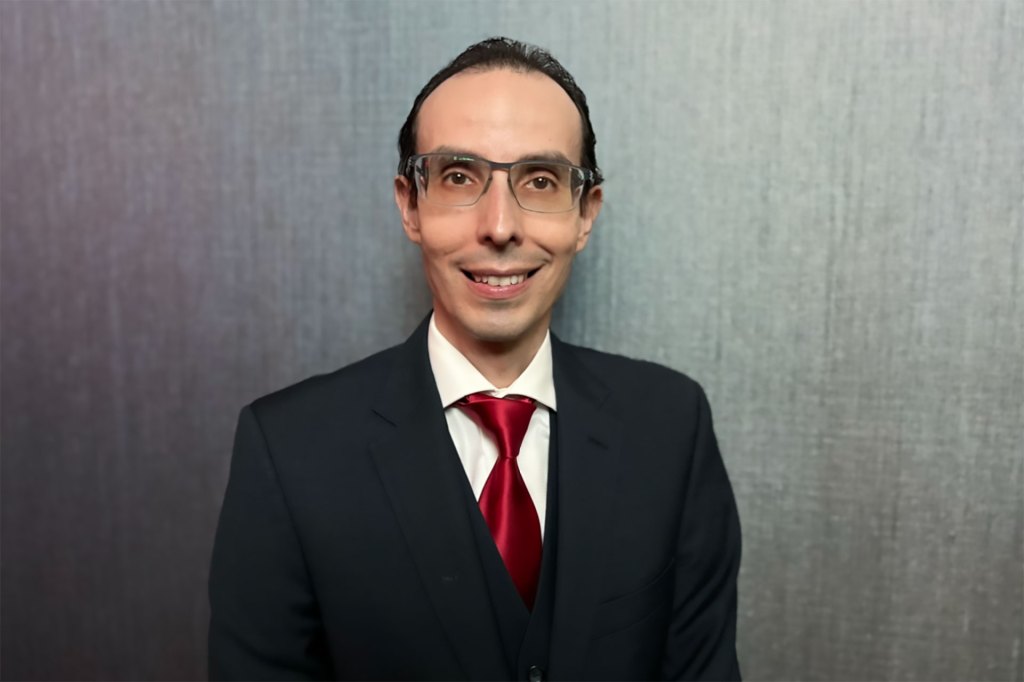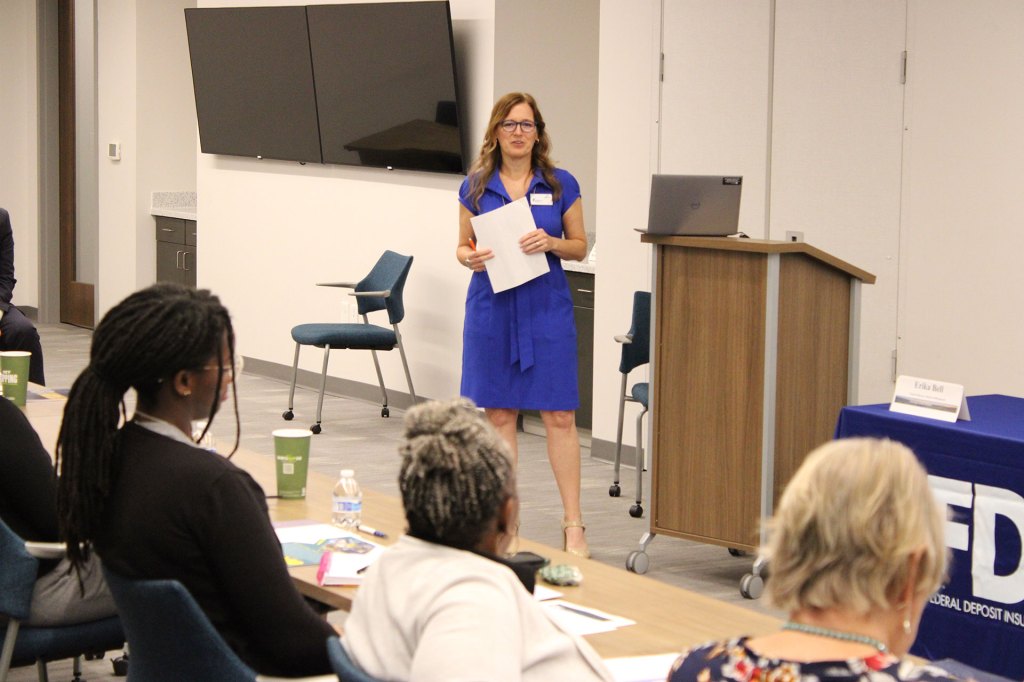Dr. Dontá Council (l), Community Development Advisor, Atlanta Fed, participating at a White House and FEMA roundtable in 2023
Growing up in a waterfront community in southeastern Virginia shaped Dr. Dontá Council’s interest in natural disaster and its impact on low-wealth and minority communities long before he became an advisor on the community and economic development team at the Atlanta Fed.
Dontá spent most of his life and career in the Southeast and grew up in Newport News, a predominately black coastal city within the Hampton Roads region. After experiencing his first disaster, Hurricane Isabel in 2003, he realized the severity of disaster impacts on community infrastructure and household finances.
“The Southeast doesn’t have a strong financial or social infrastructure to facilitate community resilience for those living in the margins of society,” Dontá said. “It’s home to the most people that live in poverty and it’s also most susceptible to natural disasters. That lived experience really informed my career path into the intersections of nonprofit grantmaking, disaster resilience, and economic inequality.”
The path to community development
Despite living in an area prone to natural disaster, Dontá’s path to community and economic development wasn’t linear.
“I’ve always had a passion for amplifying marginalized voices,” he said. As an undergraduate political science major who aspired to attend law school, he completed an internship at a law firm and quickly found that he wanted to pursue something with more community impact. “After that, I interned at a nonprofit teaching English to refugees and immigrants and writing grants, which I loved,” said Dontá.
After he relocated to Alabama for graduate school for a public administration degree, he joined the grantmaking team at the Community Foundation of Northeast Alabama. Witnessing firsthand the difficulties that nonprofits led by Black, Indigenous, and People of Color (BIPOC) faced in having greater impact, the teaching experience was a catalyst for Dontá’s career in community development. There, he focused on investing in building nonprofit organizational capacity while addressing health and disaster disparities in lower-income communities.
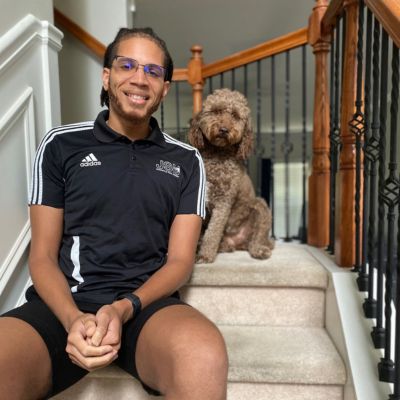
“My experience in philanthropy led me to focus my research on economic inequality for households and organizations serving BIPOC communities. At the Fed, my work is a hybrid between communities and research,” he said. “I work to identify the economic barriers to community resilience and create solutions to meet the needs of low-wealth and underserved throughout the Southeast.”
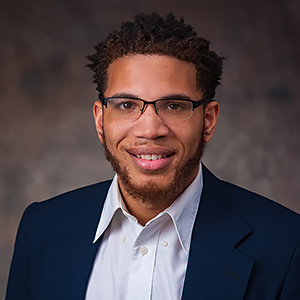
“I work to identify the economic barriers to community resilience and create solutions to meet the needs of low-wealth and underserved throughout the Southeast.”
Sharing stores of resilience by combing data and storytelling
Dontá now uses the lessons he’s learned to give back to his community and region. He says he’s learned much about resilience by connecting and listening to community leaders and members. “Resilience is about an individual or community’s ability to get through hard times, and sometimes different communities need different things,” he says. He leverages his expertise at the Atlanta Fed to bridge the gap between research and action. Both inside and outside of the Fed, Dontá’s work is driven by diversifying perspectives through inclusive data and storytelling. He considers himself a social scientist who provides nuance to discussions that occur around the economy using both quantitative and qualitative approaches.
Dontá was recently invited to a roundtable hosted by the Federal Emergency Management Agency (FEMA) and the White House to highlight the importance of resilience and neighborhood partnerships for community resilience. “I employed storytelling and data working on the report: “Navigating a Crisis: An Uneven Recovery for Communities and Organizations in the Southeast.” I co-authored that report for the Atlanta Fed,” he said. It elevated conditions from disaster-related shocks for low- and moderate-income communities and communities of color in the Southeast related to COVID-19. FEMA officially declared COVID-19 as a disaster. A key takeaway from that work was that organizations serving communities saw themselves recovering faster than the communities they work with.
Best of both worlds
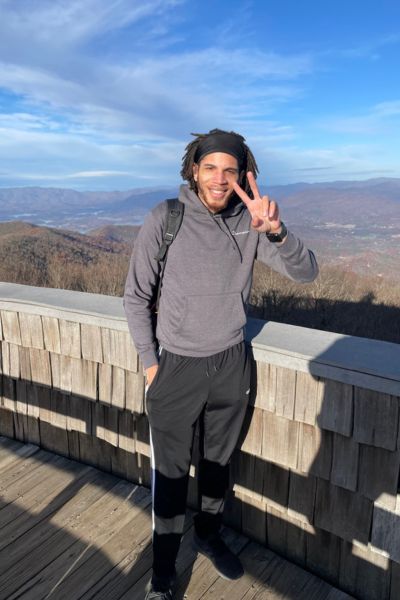
In working for the Atlanta Fed, Dontá combined his experiences throughout his academic and career journeys to continue raising awareness about natural disasters in vulnerable communities of color.
“My work in community development taught me how to have compassion and empathy for communities and the language and skillsets necessary to connect with different audiences. My time before the Fed helped me get a sense of the nonprofit and philanthropy space,” said Dontá.
“Transitioning to the Fed I asked myself – ‘how do I bring that work here, and how can we be an asset to communities already doing great work on the ground that may lack resources in terms of research, evidence, data or the civic infrastructure to set the table and have a conversation?’ ” Dontá said. At the Fed, he says he’s been able to assess those gaps and highlight the risks of disasters to marginalized communities in the Southeast, thinking about ways to attract capital, build coalitions, and meet the needs of low-income communities and workers.
“It’s fulfilling to continue the research and be connected to communities in ways that have more applied solutions,” he said.






